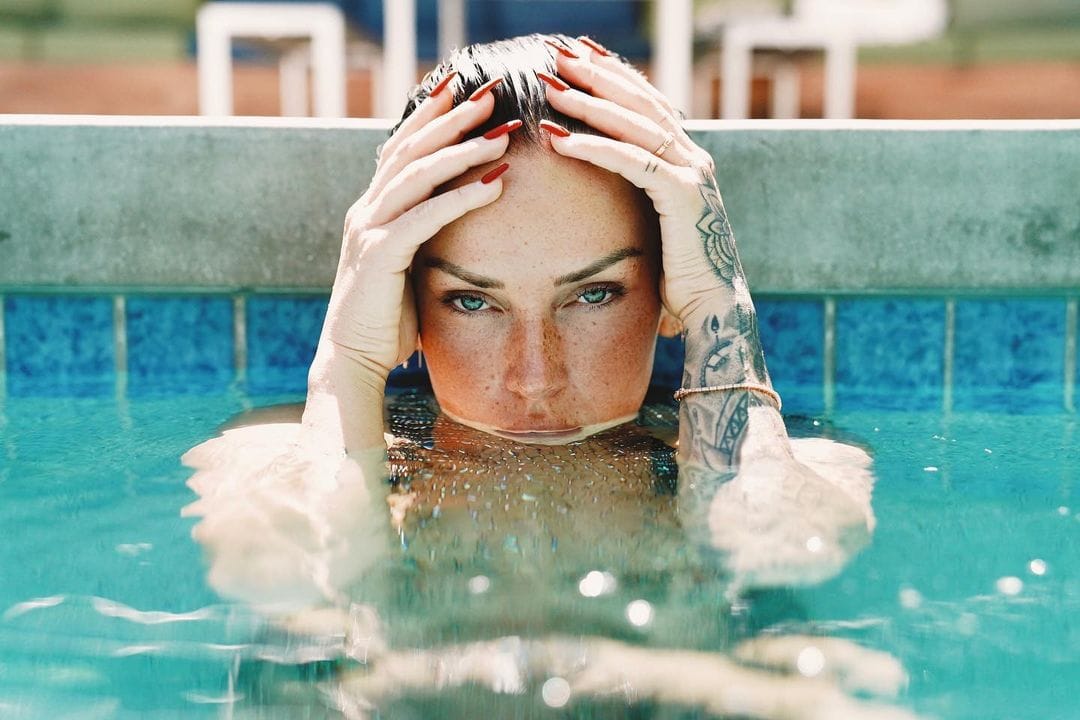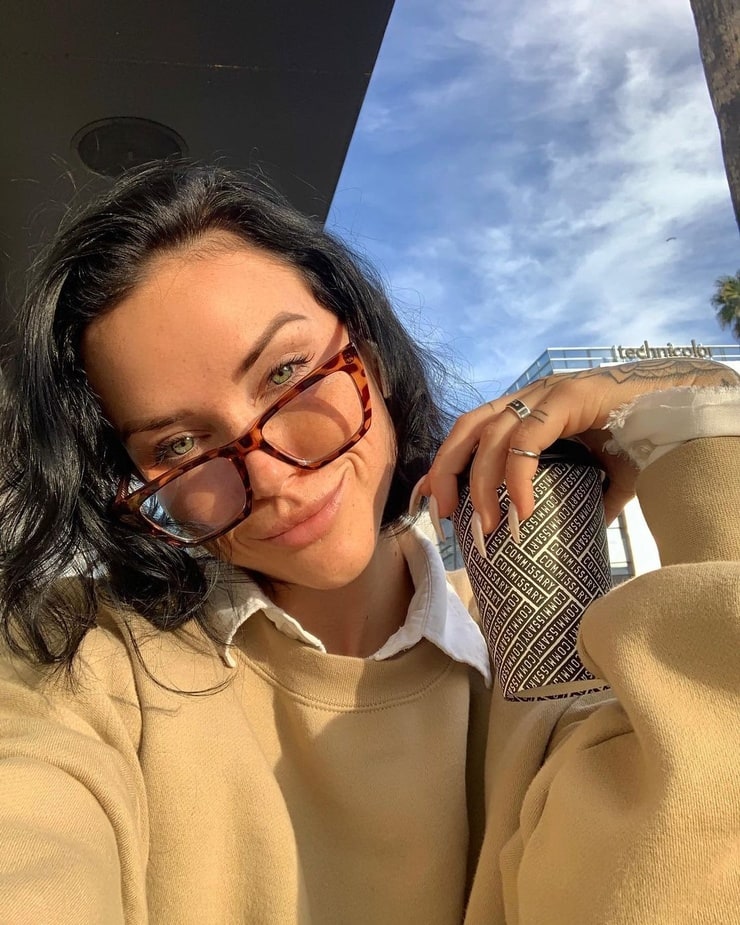Let’s cut to the chase here, folks. If you’ve stumbled upon this page because you’re searching for “Kayla Lauren naked,” I gotta level with you—this ain’t that kinda article. What we’re diving into today is a deeper conversation about privacy, consent, and the way misinformation spreads online. We’re talking about real issues that affect real people, including someone like Kayla Lauren, whose name might’ve been dragged into some digital drama. So, grab your coffee, settle in, and let’s have an honest chat.
You’ve probably heard the phrase “with great power comes great responsibility.” Well, the internet’s no different. In today’s world, where a simple search can lead to all sorts of content—some legit, some not so much—it’s crucial to understand what’s real and what’s fake. And if you’re searching for something like “Kayla Lauren naked,” chances are, you’re either misinformed or clicking on links that might not be kosher.
Now, before we get too deep into this, let me clarify: this article isn’t about prying into anyone’s personal life or spreading gossip. It’s about shedding light on how personal information can be misused online and why it’s important to respect people’s boundaries. So, whether you’re a fan of Kayla Lauren or just curious, stick around. There’s a lot to unpack here.
Read also:Diego Sans The Rising Star In The World Of Creativity
Who Is Kayla Lauren? A Quick Bio
Before we dive into the nitty-gritty, let’s talk about Kayla Lauren herself. Who is she, really? Depending on where you’re getting your info, Kayla Lauren could be a social media influencer, a content creator, or even someone who’s been thrust into the spotlight without asking for it. In today’s digital age, fame can happen overnight—and sometimes, it’s not always a good thing.
Here’s a quick rundown of who Kayla Lauren is, based on available information:
| Name | Kayla Lauren |
|---|---|
| Profession | Content Creator / Influencer |
| Age | Not publicly disclosed |
| Location | Varies depending on sources |
| Social Media | Active on platforms like Instagram, TikTok, etc. |
Now, here’s the thing: just because someone’s famous doesn’t mean they’re fair game. Privacy matters, and consent is everything. Which brings us to our next point…
Why Is “Kayla Lauren Naked” Such a Big Deal?
Let’s break it down. When you search for something like “Kayla Lauren naked,” you’re essentially looking for content that might violate someone’s privacy. Whether it’s photos, videos, or anything else, the key question is: did Kayla Lauren give permission for this content to exist? If the answer’s no, then we’ve got a problem.
Here’s the kicker: in many cases, content like this is either fake or stolen. People might create deepfakes, leak private photos without consent, or even use Photoshop to manipulate images. And let’s be real—if you’re searching for this kind of stuff, you’re probably not helping the situation.
Understanding Consent in the Digital Age
Consent isn’t just a buzzword; it’s a fundamental right. In the context of “Kayla Lauren naked,” it means that any content involving her should only exist if she’s okay with it. Anything else? That’s a violation of her privacy—and in some cases, it’s illegal.
Read also:Jason Romo The Untold Story Of A Rising Star In The Spotlight
Think about it this way: would you want someone sharing your private photos without your permission? Probably not. So why do we think it’s okay to do the same to others?
The Impact of Misinformation on Personal Lives
Misinformation isn’t just harmless rumors; it can have real-world consequences. For someone like Kayla Lauren, being associated with terms like “naked” can damage her reputation, affect her career, and even lead to harassment. And that’s not cool.
Here are a few ways misinformation can impact someone’s life:
- Reputation Damage: Once a false narrative spreads, it can be hard to shake off.
- Harassment: People might send hate messages, make threats, or even stalk the person involved.
- Loss of Opportunities: Brands and collaborators might shy away from working with someone who’s been involved in scandalous headlines.
- Mental Health Struggles: Constant scrutiny and negativity can take a toll on anyone’s mental well-being.
So, the next time you come across something fishy online, take a moment to think: is this really true? And if it’s not, should you be spreading it?
The Role of Social Media in Spreading Misinformation
Social media platforms are powerful tools, but they can also be breeding grounds for misinformation. With algorithms designed to show us what we want to see, it’s easy to fall into the trap of believing everything we read online.
How Platforms Contribute to the Problem
Platforms like Instagram, Twitter, and TikTok have policies against non-consensual sharing of intimate images, but enforcement can be spotty. Sometimes, content slips through the cracks, and by the time it’s taken down, the damage is already done.
Here’s what platforms can do to help:
- Improve AI detection for harmful content.
- Encourage users to report violations.
- Provide resources for victims of online harassment.
Legal Implications of Sharing Private Content
Let’s talk about the law for a second. Sharing private content without consent isn’t just unethical—it’s often illegal. Depending on where you live, there might be laws against revenge porn, deepfakes, or any other form of non-consensual sharing.
In the U.S., for example, many states have laws specifically targeting revenge porn. And if you’re caught sharing intimate images without someone’s permission, you could face fines, jail time, or both.
What Happens When You Cross the Line?
Crossing the line when it comes to privacy can have serious consequences. Here are a few examples:
- Criminal Charges: You could be charged with distributing intimate images without consent.
- Civil Lawsuits: The person affected might sue you for damages.
- Reputation Damage: Once your actions are public, your own reputation could suffer.
So, think twice before hitting that share button.
How to Protect Yourself Online
Now that we’ve talked about the dangers of misinformation and privacy violations, let’s shift gears. How can you protect yourself online? Whether you’re a content creator like Kayla Lauren or just an average internet user, there are steps you can take to safeguard your privacy.
Tips for Staying Safe Online
Here’s a quick list of things you can do:
- Use Strong Passwords: Make sure your accounts are secure.
- Be Careful What You Share: Think twice before posting personal info.
- Enable Two-Factor Authentication: Add an extra layer of security to your accounts.
- Report Violations: If someone’s sharing your private content, report it immediately.
By taking these steps, you’re not just protecting yourself—you’re setting an example for others to follow.
Why Digital Ethics Matter
At the end of the day, it all comes down to ethics. How we treat others online should reflect how we treat them in real life. If we want a safer, more respectful internet, we need to start by respecting each other’s boundaries.
Here’s a question to ask yourself: would you feel comfortable with someone searching for “your name + naked”? If the answer’s no, then maybe it’s time to rethink how we approach these kinds of searches.
Building a Better Online Community
We all have a role to play in creating a better online environment. By promoting digital ethics, we can help reduce the spread of misinformation and protect people’s privacy. Here’s how:
- Spread Awareness: Educate others about the dangers of sharing private content.
- Support Victims: If someone’s been affected by online harassment, offer them support.
- Be a Role Model: Lead by example and treat others with respect.
Conclusion: Let’s Do Better
Alright, folks, let’s wrap this up. Searching for “Kayla Lauren naked” might seem like harmless curiosity, but it’s actually part of a bigger issue. Misinformation, privacy violations, and digital harassment are real problems that affect real people—and we all have a responsibility to do better.
So, here’s what I’m asking you to do: the next time you’re tempted to click on something that feels off, stop and think. Is this content respectful? Is it consensual? And most importantly, is it true? If the answer’s no, then maybe it’s time to move on.
And hey, if you’ve made it this far, why not leave a comment or share this article? Let’s start a conversation about digital ethics and how we can make the internet a safer place for everyone. After all, we’re all in this together.
Table of Contents


